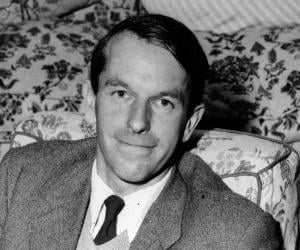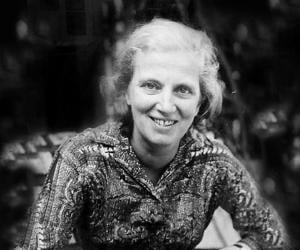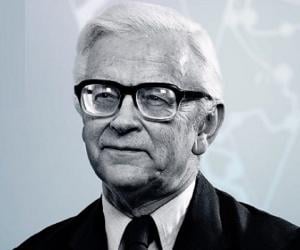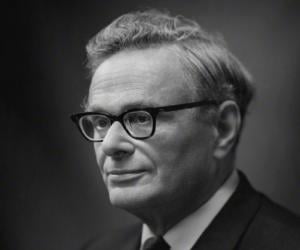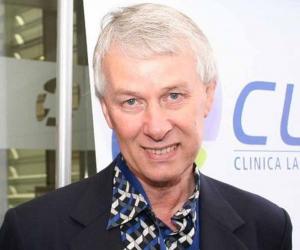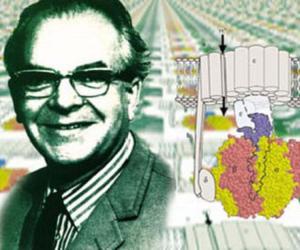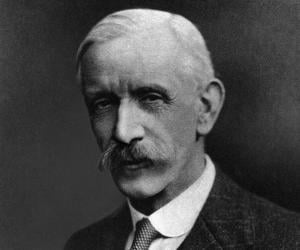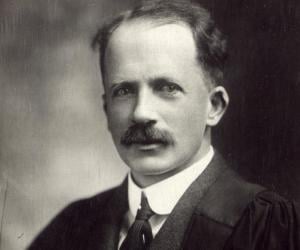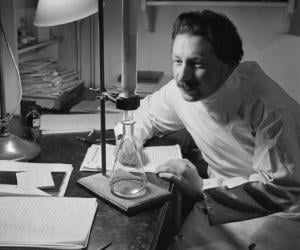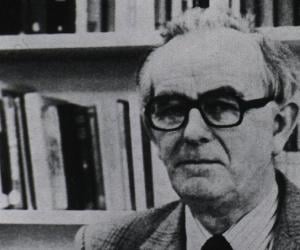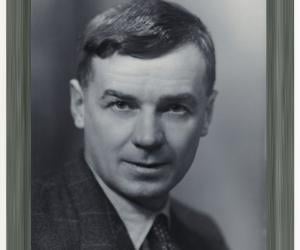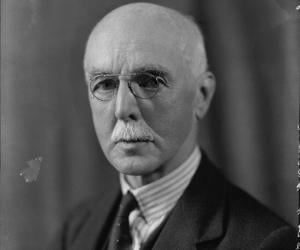Frederick Sanger remains one of only two people to have won the Nobel Prize twice in the same category. The British biochemist is remembered for his ground-breaking work on nucleic acids and the insulin molecule. The son of a Quaker medical missionary, Sanger, too, grew up believing in Quakerism.
Dorothy Hodgkin received the 1964 Nobel Prize for mapping the structure of penicillin and Vitamin B12. She is also known for her work on insulin. Beginning her work on structure of an organic compound by using X-ray crystallography as an undergraduate student, she later developed it further and used it to determine the three-dimensional structure of complex organic molecules.
Nobel Prize-winning biochemist John Kendrew revolutionized science with his 3-D model of the muscle protein myoglobin. The Cambridge alumnus later co-founded the European Molecular Biology Organization and had been the editor-in-chief of the Journal of Molecular Biology. He had also worked on operational research for the Royal Air Force.
Born to an ENT surgeon in Germany, Hans Adolf Krebs followed in his father’s footsteps and studied medicine. After fleeing Nazi Germany, he went to England, where he joined the University of Cambridge as a researcher. The Nobel Prize-winning scientist is remembered for his groundbreaking discovery of cellular respiration.
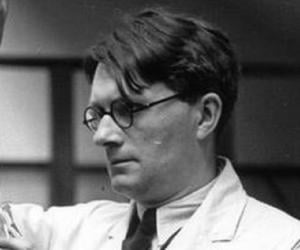
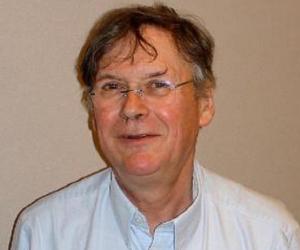
Nobel Prize-winning British biochemist Tim Hunt is best known for his research on cell cycle regulation. He was the first to isolate cyclin, while studying sea urchins. His work helped scientists working on cancer research. He has been knighted for his achievements and has also won the Royal Medal.
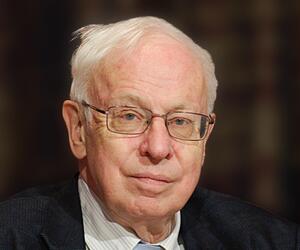
Tomas Lindahl is a Swedish-British scientist who specializes in cancer research. He is best known as the winner of the 2015 Nobel Prize in Chemistry, which he received alongside Turkish chemist Aziz Sancar and American chemist Paul L. Modrich. Over the years, Tomas Lindahl has also been honored with other prestigious awards such as the Royal Medal and Copley Medal.
Molecular biologist Richard J. Roberts is best known for his Nobel Prize-winning research on split genes. The Harvard alumnus had wished to be a detective as a child but changed his mind after being gifted a chemistry set. He was also made a Fellow of the Royal Society and knighted.
Peter Mitchell was a British biochemist best known for his discovery of chemiosmosis, for which he was honored with the prestigious Nobel Prize for Chemistry in 1978. Over the course of his career, Peter Mitchell also received other prestigious awards such as the Copley Medal and the Sir Hans Krebs Medal.
Frederick Gowland Hopkins was an English biochemist whose discovery of vitamins earned him the prestigious 1929 Nobel Prize in Physiology or Medicine. He also received other prestigious awards like the Royal Medal and Copley Medal. He is also credited with discovering the amino acid tryptophan. From 1930 to 1935, Frederick Gowland Hopkins served as the President of the Royal Society.
John James Rickard Macleod was a Scottish biochemist and physiologist. Even though his research covered diverse topics in physiology and biochemistry, he is best remembered for his work in carbohydrate metabolism. He played a major role in the discovery and isolation of insulin, for which he shared the 1923 Nobel prize in Physiology or Medicine with Frederick Banting.
Born to a chemist father in Berlin, Ernst Boris Chain moved to the U.K. amid the rise of the Nazis. The Nobel Prize-winning biochemist later worked at the universities of Cambridge and Oxford. He is best remembered for isolating and purifying penicillin, along with Howard Walter Florey.
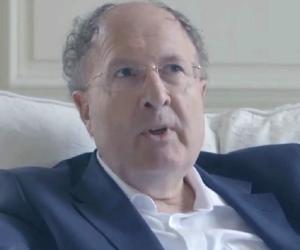
Gregory Winter is a British molecular biologist and Nobel Prize winner. He is best known for his work concerning the therapeutic use of monoclonal antibodies. Gregory Winter is credited with pioneering a technique to humanize mouse monoclonal antibodies, which enabled the usage of antibodies for therapeutic uses.
British biochemist Rodney Robert Porter, CH, FRS, FRSE, is best-known for determining chemical structure of an antibody for which he received Nobel Prize in Physiology or Medicine (shared with Gerald M. Edelman) in 1972. He served at NIMR, as Pfizer Professor of Immunology at St. Mary's Hospital Medical School and as Whitley Professor of Biochemistry at the University of Oxford.
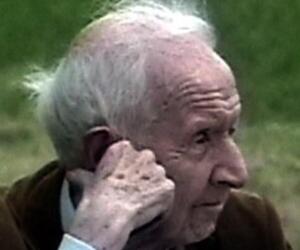
English barrister and biochemist Lancelot Ware OBE conducted medical research at the NIMR; and served at St Thomas' Hospital, at Porton Down during Second World War; and at Boots Company. He also practiced law and was elected an Alderman of London County Council. He co-founded Mensa, which with-time emerged as the world’s largest and oldest society for intellectually gifted people.
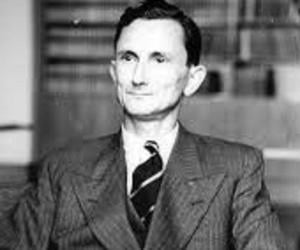
Norman Heatley was an English biochemist and biologist. He was part of a team of Oxford University scientists whose work led to the development of penicillin. Heatley is credited with developing a technique for purifying penicillin in bulk. Norman Heatley's contribution in the development of penicillin was not fully recognized until 1990.
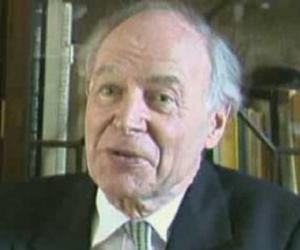
Arthur Peacocke was an English Anglican biochemist and theologian. He is best remembered for his work concerning the relationship between religion and science. In 1983, Peacocke was honored with the Lecomte du Noüy Prize. He was also awarded the prestigious Templeton Prize in 2001. Arthur Peacocke also served as a professor and lecturer during his lifetime.
Richard Laurence Millington Synge was a British biochemist best remembered for winning the Nobel Prize in Chemistry in 1952 for the invention of partition chromatography. He was also associated with the Royal Society of Chemistry where he served as the treasurer of its Chemical Information Group. Synge also served as an honorary Professor at the University of East Anglia.
Arthur Harden was a British biochemist best remembered for winning the prestigious 1929 Nobel Prize in Chemistry for his investigations into the fermentative enzymes and fermentation of sugar. He shared the award with German-born Swedish biochemist Hans Karl August Simon von Euler-Chelpin. Arthur Harden is also remembered as a Biochemical Society's founding member.
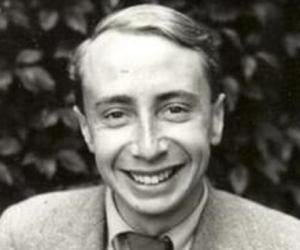
Edward Abraham was an English biochemist who played an important role in the development of cephalosporin and the first antibiotics penicillin. His work earned him several prestigious awards such as the Royal Society's Royal Medal, Mullard Award, and Scheele Award.
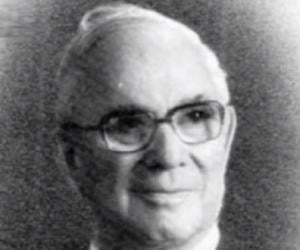
German-born British biochemist Hans Kosterlitz FRS headed a new Department of Pharmacology as professor at the University of Aberdeen. There he also collaborated in research with British neuroscientist John Hughes. They discovered opioid peptides in the brain, isolated enkephalins from pig brain and identified two peptides, met-enkephalin and leu-enkephalin. Such work led them to receive Albert Lasker Award in 1978.
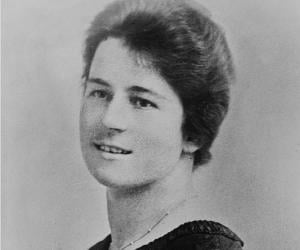
British-American mathematician and biochemist Dorothy Maud Wrinch initially gained recognition as the only female wrangler of the Mathematical Tripos in 1916. She later taught math at the universities of Oxford and Cambridge and became the first woman in the world to get a doctorate in science from Oxford.
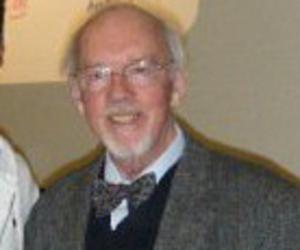
Hans Kornberg was a British-American biochemist who became the first person to be honored by the Biochemical Society with the prestigious Colworth Medal in 1963. He also held professorships at prestigious institutions, including the Boston University.

Norman Pirie was a British virologist and biochemist. He is best remembered for isolating tomato bushy stunt virus and discovering that a virus can be crystallized in 1936. Norman Pirie's work was a prominent milestone in understanding RNA and DNA.
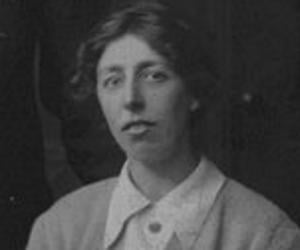
Muriel Wheldale Onslow was a British biochemist. She is best remembered for her work concerning the biochemistry of anthocyanin pigment molecules. Wheldale Onslow was also one of the first women to be appointed as a lecturer at Cambridge.
